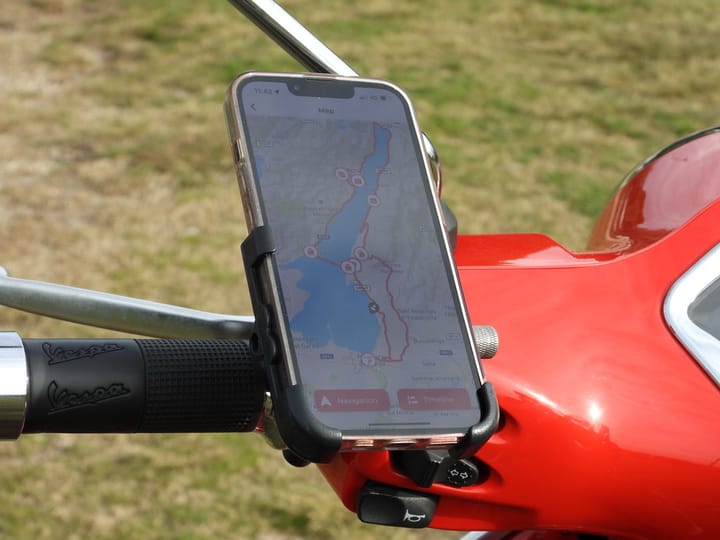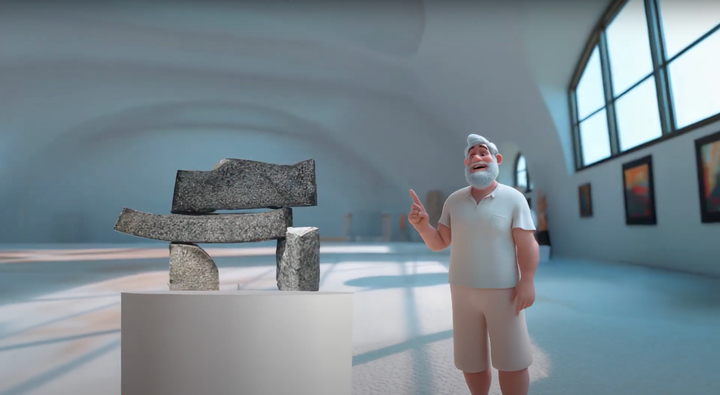AI operated experiences could unlock the thrill money can't buy
In a world that's been systematically de-risked, true adventure has quietly disappeared. Indrek Peenmaa, co-founder of Nordic Experience, explores how AI could help bring back authentic risk—and with it, the emotional thrill that makes us feel truly alive

This is a guest post by Indrek Peenmaa, co-founder of Nordic Experience, a company specializing in private tours across Northern Europe.
You can fly first class. Stay at the best hotels. Buy anything you want.
But there’s one thing money struggles to buy: authentic risk—and the kind of emotional thrill that makes you feel truly alive.
In the world today, many people have achieved financial success—but along the way, something else has quietly disappeared: the spirit of real adventure.
We live in the safest, most standardized world in history.
Even children’s playgrounds are padded and protected.
For adults, the most socially accepted "risky" behaviors are playing internet poker or trading Tesla shares on leverage.
Where once we had Indiana Jones fantasies, now our risks are reduced to market volatility.
And it’s no wonder. The world has been systematically de-risked.
If you want real uncertainty, you have to travel far and even then, many "tribal" experiences are carefully sanitized for tourists, often harming the very cultures people long to encounter.
So where does that leave the people who still crave authentic risk and meaningful excitement?
Where Risk and Travel Used to Meet
For the past 15 years, I’ve been involved in creating private, personalized tours through Nordic Experience. Before that, I spent three years in the internet gaming industry, where the psychology of risk and reward was very much at the forefront.
Both industries taught me the following: Meaningful experiences come from uncertainty.
Not danger for danger’s sake, but the feeling of not knowing what will happen next and trusting yourself to navigate it.
The Game: A Movie Ahead of Its Time
Lately, I’ve been thinking a lot about the 1997 movie The Game, starring Michael Douglas.
The basic idea?
A wealthy but jaded man is enrolled (without clear consent) into a customized "game" that spills into his real life.
He doesn’t know who to trust.
He doesn’t know when the game ends.
He doesn’t even know if he’s still himself.
It’s not a trip to another place—it’s a trip into another version of his own reality.
And watching it again, I keep wondering: Could we offer something like this in real life and with the help of an AI?
The Future of Adventure: The Game Comes to You
Instead of booking a 2-week extreme adventure holiday, imagine:
• The experience starts when you least expect it, on your morning commute or during a weekend brunch.
• You don't travel to it. It travels to you.
• A team of "creators" like life coaches, matchmakers, casino VIP hosts, disruption architects, and other boundary-pushing specialists will curate and tailor moments just for you.
• You’re challenged to act, react, and navigate in ways you have not done before.
And you never know:
Is that person who just asked you a strange question part of it?
Or just a random encounter?
The Role of AI in Creating These Experiences
AI is still early in experiential design, but its potential is obvious:
• Scaling spontaneity: AI-generated characters (via chat, calls, or real-world setups) can trigger unexpected events without huge production budgets.
• Lowering costs: Human-driven games like this are expensive; AI allows broader access without sacrificing depth.
• Personalizing risk: AI could analyze your behavior to adjust the "riskiness" to your tolerance level.
However, human account managers would still be essential - especially to keep the experience thrilling, legal, and not damaging to reputation.
You can dance near the line of morality and good taste - but it is better to stay on the right side.
The Temptation (and Risk) of Going Deeper
A true high-end version could even involve:
• Hiring secret actors into your workplace.
• Receiving mysterious tasks during your normal day.
• Underground missions: Finding hidden people or extracting information in a staged environment.
This is where things could get complicated.
In spy movies like Mission Impossible or James Bond, much of the thrill comes from deception and infiltration. Even though faking identities has become technically easier then ever, even simulated versions must be handled carefully to avoid legal issues.
Pushing the Boundaries of Experience
The most exclusive versions of these experiences—those heavily crafted with human actors, personalized storylines, and real-world infiltration would be like haute couture: seductive, rare, and unattainable for most.
They wouldn’t exist to be practical or mass-market, but to stretch imagination, provoke conversation, and offer once-in-a-lifetime transformation for those who truly crave it.
These full-scale, human-driven adventures would especially appeal to high-net-worth individuals such as investment bankers, tech entrepreneurs, and executives from cities like New York, London, and Dubai. They are the kind of clients who seek rare experiences that challenge their routines and offer a taste of unpredictability.
At the same time, as AI capabilities grow, more streamlined versions could become accessible to a wider audience by preserving the thrill, while reducing the cost and complexity.
A Personal Note
This post is meant first and foremost as inspiration—an exploration of how experiences could evolve when real risk, adventure, and AI converge.
I offer this idea with one question in mind:
What if our future experiences became a little more uncertain, a little more risky and, through that, also more meaningful?
And what if AI helped us rediscover real adventure, while helping us grow, connect, and feel more alive?
It might be time to bring back something like Consumer Recreation Services, the fictional experience design company from the movie The Game—only this time, with AI as a creative partner, not just a tool.
Today’s AI-driven games still feel predictable. But the day will come when they are as impulsive, emotional, and surprising as real humans. When that happens, the future of travel—and personal adventure—will look very different. And perhaps, once again, the game will be on.
If you're exploring similar ideas or simply want to exchange thoughts, feel free to reach out. I’d enjoy connecting with others who are curious about this future.
Read more from Indrek at indrek.substack.com
Want to read more like this?
Low volume. Short length. Focused content.
We know you're busy — only the good stuff, no noise.



